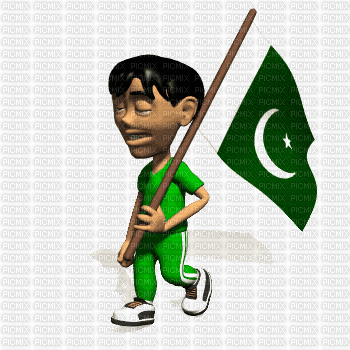As a tourist visiting Pakistan, it is important to understand some of the common slangs and colloquial phrases used by locals. While English is widely spoken in the country, there are many words and phrases that are unique to Pakistani culture and can be confusing for outsiders. In this article, we will explore some of the most commonly used slangs in Pakistan and provide translations and explanations to help you navigate your way through your trip.
From greetings and endearments to everyday Pakistani slang, this guide will help you navigate through the language and culture of the country.
Greetings and Polite Phrases
First, let's start with some basic greetings and polite phrases. In Pakistan, it is customary to say "Assalamu alaikum" (meaning "peace be upon you") when greeting someone. This phrase is used by Muslims as a way to wish peace and blessings upon the person they are greeting. Another common EASY greeting is "Salam" (meaning "peace"), which is used in a similar way. If you want to be more formal, you can say "Salam walekum" (meaning "peace be upon you too").
Common Slangs and Colloquial Phrases
Now, let's move on to some more specific slangs and colloquial phrases. One phrase that you might hear often is "Yaar" (meaning "friend"). This word is used to address someone in a friendly or casual manner, similar to how "dude" or "mate" might be used in English. Another common slang is "Bhai" (meaning "brother"), which is used to address someone in a respectful way.
General Slangs and Colloquial Phrases
One phrase that might cause confusion for tourists is "Inshallah" (meaning "God willing"). This phrase is used to express hope or a desire for something to happen, but it also acknowledges that the outcome is ultimately in the hands of God. For example, if someone says "I will see you tomorrow, Inshallah," it means that they hope to see you tomorrow, but it is not a definite promise.
Terms of Endearment
In Pakistani culture, it is also common to use terms of endearment when addressing someone. Some examples include "jaan" (meaning "darling" or "sweetheart") and "beti" (meaning "daughter"). These phrases are often used to show affection or respect, and are not necessarily limited to romantic relationships.
Specific Slangs and Colloquial Phrases
Now let's move on to some more specific slangs and colloquial phrases that you might encounter during your trip to Pakistan. "Chalo" (meaning "let's go") is a common phrase used to invite someone to leave with you. "bhai" (meaning "guy" used as we use "dude") is another word that you might hear frequently, and is used to refer to a male person. "Behn" (meaning "sis") is the feminine equivalent of "bhai" and is used to refer to a female person but to whome you have no romantic interest in.
Situational Phrases
One phrase that might be confusing for tourists is "Oye" (meaning "hey"). This word is used to get someone's attention, but it can also be used in a more aggressive or confrontational way. It is important to be aware of the tone and context in which it is used, as it can have different meanings depending on the situation.
Another slang that you might hear is "Dekho" (meaning "look"). This word is often used to draw someone's attention to something, similar to how "look" might be used in English. "Mashallah" (meaning "as God willed it") is another common phrase that is used to express admiration or amazement at something.
Conclusion:
Finally, let's talk about some more general slangs and colloquial phrases that you might encounter during your trip to Pakistan. "Kya haal hai" (meaning "how are you") is a common greeting that you will hear often. "Theek hon"








0 Comments